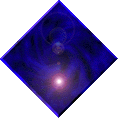Messianic Prophecies Chart
The format of this chart is:
Statement of Prophecy (reference in Bible)
—Statement of Fulfillment (References in Bible)
1. Messiah is to be born of a woman (Genesis 3:15)
— Jesus was born by Mary (Matthew 1:18–25, Luke 2:1–7, Galatians 4:4)
2. Messiah was to be descended from Abraham (Genesis 12:3, 18:18)
— Jesus traces his ancestry from Abraham (Luke 3:34, Acts 3:25, Galatians 3:16)
3. Messiah to be born of Jacob (Numbers 24:17,19)
— Jesus traces his ancestry from Jacob (Matthew 1:2, Luke 3:34)
4. Messiah to be descended from Judah, a son of Jacob (Genesis 49:10)
— Jesus traces his ancestry from Judah (Luke 3:33, Matthew 1:2)
5. Messiah to be descended from King David (Psalm 132:11, Jeremiah 23:5, 33:15, Isaiah 11:10)
— Jesus is a direct descendant of Kind David through both his mother and
adoptive father (Matthew 1:6, Luke 1:32–33, Romans 1:3, Acts 2:30)
6. Messiah to be crucified (Psalm 22, 69:21)
7. Messiah will be pierced (Zechariah 12:10, Psalm 22:16)
8. Messiah will be killed (Isaiah 50:6, Daniel 9:26)
— Jesus was crucified, pierced, and executed (Matthew 27:34–50, John 19:28–30, John
19:34, 37, Matthew 26:67, 27:26, 30)
— Jesus quoted Psalm 22:1 when he was crucified "My God, my God, why have you forsaken
me?" (Matthew 27:46)
9. Homage and tribute paid to Messiah from great kings (Psalm 72:10–11)
— Magi from the east came to offer homage and tribute to the infant Jesus (Matthew 2:1–11).
However, additional fulfillment of this prophecy remains yet future.
10. Messiah to be born of a virgin (Isaiah 7:14)
Note: The Hebrew word "almah" for 'virgin' has sometimes been translated simply as 'young woman'.
'Virgin' is a better translation because:
- Nowhere in the Scriptures is "almah" used of a non-virgin
- The author clearly intends the event to be a significant sign; a young woman having a baby would not be significant
— Jesus was born of Mary who was, at that time, a virgin (Matthew 1:18–25, Luke 1:26–35). Mary later bore other children by her husband
Joseph (Matthew 12:46–50).
11. Messiah begins his teaching in Galilee (Isaiah 9:1–8)
— Jesus began teaching in Capernaum, a city in Galilee (Matthew 4:12–17)
12. Messiah will be gentle, mild and meek (Isaiah 42:2–3, 53:7)
— Jesus did not come to fight or incite the people to war. He never raised His hand against another except to drive the money changers from the temple (Matthew 12:15–20, 26:62–63, 27:11–14)
13. Messiah will not exclude the Gentiles in his mission (Isaiah 42:1, 49:1–8)
— Jesus accepted the repentance of many Gentiles and preached that gentiles will be included in God's plan for the salvation (Matthew 12:21)
14. The message the Messiah will bring (as written in Isaiah) matches the message Jesus brought (Isaiah 52:13 – 53:12)
— All four Gospels (The Messiah brings Salvation through his suffering)
15. The Messiah will perform miracles (Isaiah 35:5–6)
— The Gospels are full of Jesus' miracles; here are a couple of passages which summarize this (John 11:47, Matthew 11:3–6)
16. Messiah to be born in Bethlehem (Micah 5:2)
— Jesus was born in Bethlehem (Matthew 2:1, Luke 2:4–6)
17. Messiah will enter the temple with authority as the messenger of God (Malachi 3:1)
— Jesus taught in the temple and synagogues as one having authority, not as one who simply reads the scriptures and preaches from them (Luke 4:15–21, Matthew 21:12, 7:28–29)
18. Messiah will enter Jerusalem on a donkey (Zechariah 9:9)
— Jesus entered Jerusalem on a donkey (Matthew 21:1–10)
19. Messiah will be forsaken by his disciples (Zechariah 13:7)
— Jesus' disciples all deserted him at the time of his arrest and
crucifixion (Matthew 26:31, 56, 75)
20. They would cast lots for his clothing rather than divide it among them (Psalm 22:18)
— The clothes of the one to be executed became spoil to the executioners (Matthew 27:35, John 19:24)
21. Although he was to die as a criminal his grave would be that of a rich man (Isaiah 53:9)
— Jesus was buried in the tomb that a rich man had purchased for the time of his own death; instead, he donated it to Jesus (Matthew 27:57–60)
22. The Messiah would be bought with 30 pieces of silver (Zechariah 11:12)
— Judas Iscariot was paid this amount to betray Jesus, that is, to find a time when He was alone and not protected by multitudes of followers so that He could be seized
easily (Matthew 26:15)
23. Messiah to be betrayed by a friend (Psalm 41:9)
— Judas, the son of Simon Iscariot betrayed Jesus (John 13:18–30; 18:1–9)
24. Messiah to be the Son of God (Psalm 2:7, Proverbs 30:4)
— Jesus was born of the Holy Spirit and was later announced to be God's son at the time of His baptism (Luke 1:32, Matthew 3:17)
25. Messiah to be raised from the dead (Psalm 16:10)
— Matthew 28:1–20, Acts 13:35–37
26. Messiah will ascend into heaven (Psalm 68:18, [Ephesians 4:8])
— Luke 24:51, Acts 1:6–11
27. Messiah will be both God and Man (Jeremiah 23:5–6). In these verses, the Messiah is described as both descended from King David and as YHWH
(Yahweh (‘Jehovah’)), sometimes translated 'The LORD'.
YHWH was the Hebrew name for God which was regarded as too sacred to pronounce.
— (l John 1:1–14)
|
